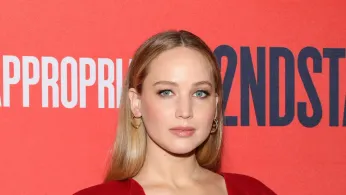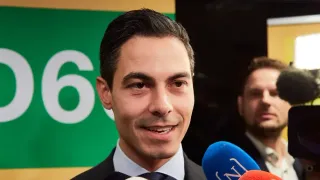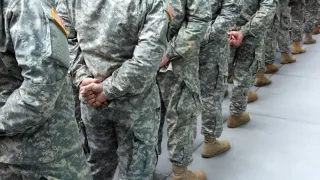
10 hours ago
Jennifer Lawrence Steps Back: When Speaking Out Feels Like Fuel on the Fire
READ TIME: 3 MIN.
Jennifer Lawrence, Oscar winner and star of "The Hunger Games"—a cinematic rallying cry for resisting oppressive regimes—has never been shy about politics. But in a moment echoing the exhaustion and recalibration so many LGBTQ+ people and allies feel, she recently revealed on The New York Times podcast “The Interview” that she’s pressing pause on public political commentary, especially about Donald Trump. Her reason is as raw as it is relatable: “I’m just sharing my opinion on something that’s going to add fuel to a fire that’s ripping the country apart. We are so divided” .
For queer audiences, Lawrence’s words land with special resonance. LGBTQ+ communities have long relied on public figures—especially cisgender, heterosexual allies with enormous platforms—to stand up or speak out when rights are under threat. Back in 2016, Lawrence famously wrote that Trump’s victory meant “the only people that feel safe , that their rights are recognized and respected, are white men” . Her outspokenness felt like a lifeline in a time of fear and uncertainty. Yet now, as she wades through the internet’s endless outrage cycles, Lawrence is asking a question many queer people and their allies have privately pondered: *Does speaking up always help, or can it sometimes make things worse?*
She reflected, “I want to protect my craft so that you can still get lost in what I’m doing. And if I can’t say something that’s going to speak to some kind of peace or lowering the temperature or some sort of solution, I don’t want to be a part of the problem” .
Lawrence’s “complicated recalibration” isn’t just about personal burnout. She’s watching what happens to artists who dare to be political: “You watch these actors’ faces who have had incredible careers and made incredible contributions and then one half of the internet doesn’t want to see their face anymore. I get so upset for those people, and it feels so wrong” .
This anxiety isn’t abstract for LGBTQ+ communities. The internet age has made public support both a megaphone and a minefield. A-list support for queer causes can amplify visibility, shift culture, and even nudge policy—but it can also provoke targeted harassment or backlash, not just for the star but for the communities they champion. The tension between “solidarity” and “spectacle” is real: When does an ally’s voice help, and when does it drown out or endanger?
Lawrence’s pivot is not to silence but to strategy. Instead of rants and retweets, she’s choosing the artful route: “I try to express my politics through my work. A lot of movies coming out from my production company are expressions of the political landscape and that’s how I feel like I can be helpful” .
Examples include her recent production of “Bread and Roses,” a documentary following three Afghan women during the Taliban’s takeover, and “Zurawski v. Texas,” a project tackling abortion rights—issues with deep resonance for queer and intersectional audiences . In a climate where LGBTQ+ rights and reproductive freedom are often under simultaneous attack, this approach feels both subversive and strategic.
For LGBTQ+ people, the push-pull between visibility and vulnerability is familiar. Sometimes the loudest act of solidarity is to step back, create space, or—in Lawrence’s case—use storytelling to illuminate rather than inflame. Her journey mirrors a broader queer conversation: When the volume of hate seems deafening, how do we choose our battles without burning out or burning bridges?
Her statement—“If I can’t say something that’s going to speak to some kind of peace or lowering the temperature or some sort of solution, I don’t want to be a part of the problem”—is a reminder that allyship and activism aren’t one-size-fits-all . Sometimes it’s about marching. Sometimes it’s about making movies. Sometimes, as Lawrence confesses with self-deprecating humor, it’s about “regretting everything I’ve ever done or said” and trying again anyway .
Jennifer Lawrence’s recalibration is not a retreat—it’s an evolution. For queer communities navigating a year of political high stakes, her candor is both a balm and a challenge. As we reckon with our own roles—when to shout, when to shelter, when to turn pain into art—her journey is a reminder that impact isn’t always measured by decibels, but by intention. Sometimes, the bravest thing isn’t speaking up louder, but choosing how, and for whom, we speak at all.






